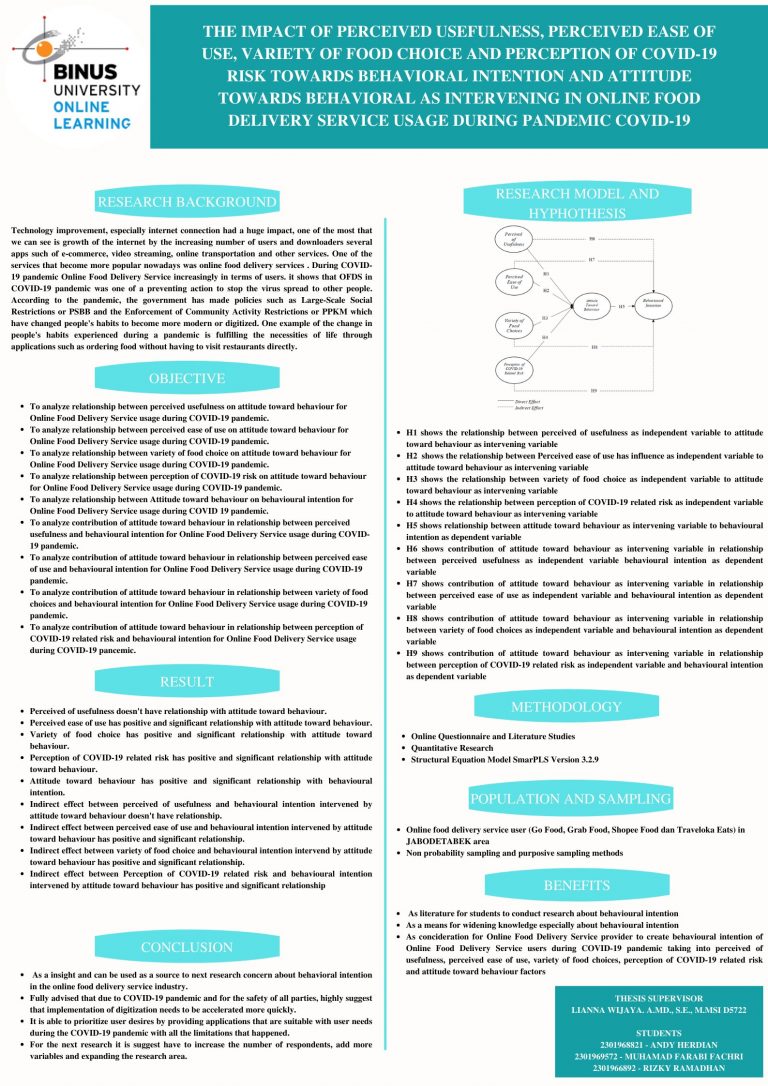The Impact of Perceived Usefulness, Perceived Ease of Use, Variety of Food Choice and Perception of Covid-19 Risk Towards Behavioral Intention and Attitude Towards Behavioral as Intervening in Online Food Delivery Service Usage During Pandemic Covid-19
Advancements in technology, particularly internet connectivity, have significantly impacted various aspects of daily life, notably evidenced by the proliferation of internet users and the widespread adoption of applications such as e-commerce platforms, video streaming services, and online transportation apps. Among these, online food delivery services have emerged as particularly popular, especially during the COVID-19 pandemic, where their usage has surged. This trend reflects the role of such services in mitigating the spread of the virus, as they offer a means of accessing necessities without the need for physical interaction. In response to the pandemic, governments have implemented measures like Large-scale Social Restrictions (PSBB) and Enforcement of Community Activity Restrictions (PPKM), prompting a shift towards digitalization and modernization in people’s behaviors. For instance, individuals have increasingly turned to food delivery apps to fulfill their dietary needs instead of dining out at restaurants directly.
Encouraging the use of online delivery services over in-person dining can minimize physical interactions and potential exposure to the virus, contributing to the goal of controlling the spread of COVID-19 and ensuring good health. The shift towards digitalization and reliance on online services in response to the pandemic has implications for urban sustainability and community resilience
Keywords: SDG 3 (health), SDG 11 (city, human settlement, urban metropolitan)



Comments :